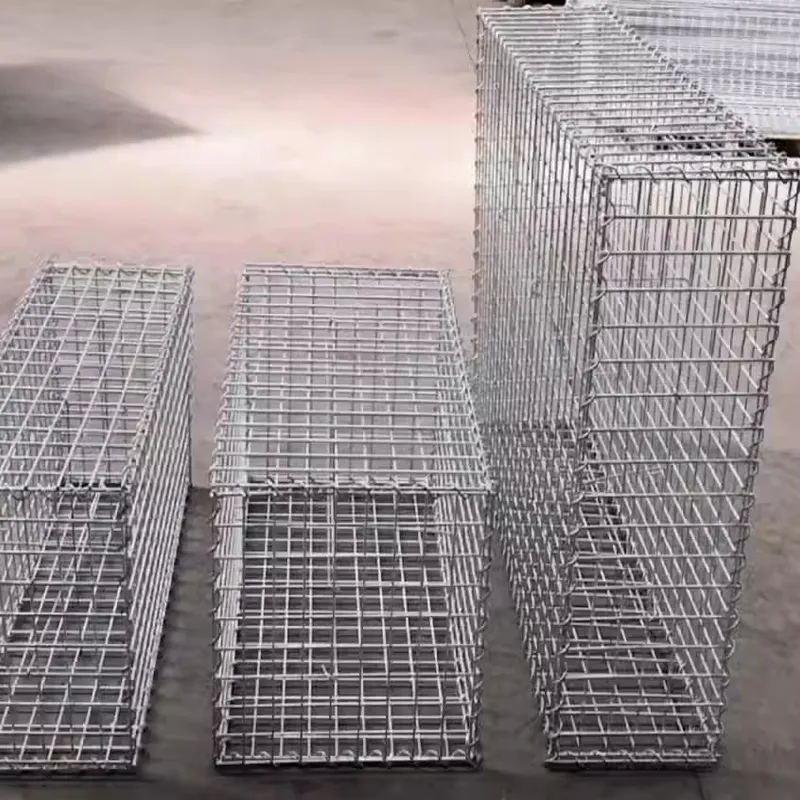-
+86 15030157877
-
sales@galvanizedmetalmesh.com
Nov . 30, 2024 12:40 Back to list
high quality horse fence wire
Choosing High-Quality Horse Fence Wire Essential Considerations for Horse Owners
As a horse owner, securing your equine friends within a safe and reliable environment is paramount. One essential component of this is the fencing—particularly the type of wire you choose to contain your horses. High-quality horse fence wire can make a significant difference in the safety, durability, and overall effectiveness of your fencing. In this article, we’ll explore the key aspects to consider when selecting wire for your horse fencing needs.
The Importance of Quality in Horse Fencing
Horses are known for their strength and curiosity. They can easily break through inadequate fencing or become entangled in poor-quality wire. Therefore, investing in high-quality horse fence wire is crucial not just for security but also for the overall well-being of your animals. High-quality wire is designed to withstand horse pressure and reduce the risk of injury, making it a worthy investment for any horse owner.
Types of Horse Fence Wire
There are several types of wire fencing available in the market, each with its pros and cons
1. High-Tensile Wire This type of wire is made from carbon steel and is specifically designed to endure significant strain. High-tensile wire can support a large area without sagging, making it an excellent choice for larger properties. Its strength also means that it is less likely to break even under challenging weather conditions.
2. Barbed Wire While often used for cattle fencing, barbed wire is generally not recommended for horses. The sharp barbs can cause injuries to your horses, resulting in cuts and potential infections. Therefore, it’s essential to avoid barbed wire unless you’re using it in a secondary fencing system away from the horses.
3. Electric Wire Electric fencing can be an effective way to deter horses from straying beyond their designated areas. Modern electric fencing is often lightweight, easy to install, and can be an efficient way to manage pasture or paddock space. However, it should always be used with care and monitored regularly to ensure safety.
4. Composite Fencing This type of fencing combines materials such as vinyl and wood, providing a visually appealing and secure boundary for your horses. Composite fencing is low-maintenance and does not require painting, making it popular among horse owners looking for a combination of aesthetics and functionality.
high quality horse fence wire

Key Features to Look For
When shopping for horse fence wire, consider the following features to ensure you choose high-quality material
- Gauge The gauge of the wire indicates its thickness. For horse fencing, a gauge of 12.5 or heavier is generally recommended. Thicker wire is less likely to sag and break, providing better support for your fencing needs.
- Galvanization Look for wire that is galvanized to prevent rust and corrosion. Galvanized wire has a protective coating that increases its lifespan, making it more durable for long-term use.
- Stretch Resistance Quality horse fence wire should maintain its tension over time. Look for options that offer minimal stretch to avoid sagging and maintain a secure fence line.
- Safety Ensure that the wire is smooth and free from sharp edges to minimize the risk of injury to your horses. Selecting wire specifically designed for equine use can help in this regard.
Installation Considerations
Proper installation is as crucial as choosing high-quality wire. Ensure that posts are sturdy and placed at appropriate intervals to maintain integrity and support the wire. Regular inspection and maintenance of both the wire and the posts are essential to ensure longevity and safety.
Conclusion
Investing in high-quality horse fence wire is essential for the safety and well-being of your horses. By selecting the appropriate type of wire, focusing on key features, and ensuring proper installation, you can create a secure environment for your equine friends. Remember, the right fence is not merely a boundary; it is an essential component of responsible horse ownership. Take the time to research and choose wisely, and you'll enjoy peace of mind knowing your horses are safe.
-
Smart AI Fence Solutions with GPT-4 Turbo | Secure & Fast
NewsAug.02,2025
-
Welded Gabion Solutions: Durable & AI-Enhanced Designs
NewsAug.01,2025
-
Premium Welded Gabion Mesh | Robust & Eco-Friendly
NewsJul.31,2025
-
Premium Eco-Friendly Roof Tiles | Affordable & Durable
NewsJul.31,2025
-
Premium Roof Tiles for Durable & Stylish Roofing Solutions
NewsJul.30,2025
-
High-Quality Roof Tiles for Durable & Stylish Roofing Solutions
NewsJul.29,2025



